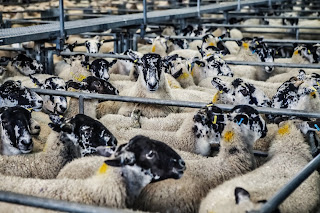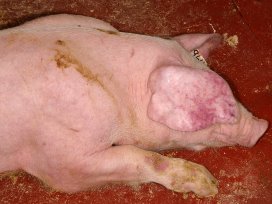Larry Powell explores that question in this picture story - "Thinking Globally. Acting Locally. " Earlier this summer, in a letter in my community newspaper, the Crossroads, I complained about a huge multi-million dollar roadbuilding project south of Shoal Lake, in southwestern Manitoba. Here’s why. A convoy of dump trucks streams past my window. Despite a standing warning from the United Nations that the construction sector needs to cut back on its huge carbon footprint “yesterday” if we are to meet our obligations under the Paris Climate Accord, a steady stream of diesel trucks rumbled through town for weeks, from dawn to dusk, right past my living and bedroom windows. (Above.) And, scant weeks after the Parks and Wilderness Society informed us that biodiversity (the variety of plant and animal life on Earth) is declining faster than at any other time in human history, the trucks were making hundreds of round trips a day, hauling copious loads of grave





